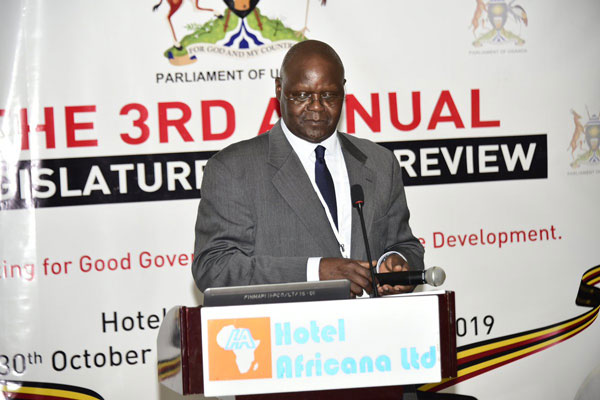
Kampala, Uganda | THE INDEPENDENT | The Commonwealth Parliamentary Association – CPA Representative, Dhar Meenakshi has commended the Parliament of Uganda for involving stakeholders including the civil society in it’s annual sector review.
She made the statement at the introduction session for the third Annual Sector Review of the Legislature Sector at Hotel Africana. The review on the 2017/2018 financial year will take three days ending on Friday.
Meenakshi says that Uganda is among the 53 members of the Commonwealth and that Uganda’s Parliament should be commended for involving the youth, academia and civil society in it’s annual sector review.
Public engagement in Parliamentary business is a key practice for CPA members that want a people-centred Parliament, Uganda inclusive.
She told URN that engaging the public and various stakeholders in Parliament business such as processing bills, petitions among other things raises awareness on the law and policy making procedures and also inspires the predominantly young population to consider becoming legislators.
The sector review is a requirement in the National Development Plan (NDP II) to identify key areas of achievement, challenges to performance during a given financial year to inform the planning process for the next financial year.
Meenakshi says that the annual sector review is akin to the self assessment for the 26 countries that have to implement the CPA recommended benchmarks for Democratic Legislatures such giving opportunity to the public such as the youth, civil society to have an input into the legislative and committee process including the budget process.
Meenakshi says that the 136 CPA benchmarks focus on legislation such as delegated legislation, post legislative scrutiny,drafting, then oversight such as budget and international agreements plus representation, Parliamentary outreach and transparency.
She adds that as of the 26 Countries implementing the CPA benchmarks, Uganda has to carry out self assessment so that Parliament can identify areas for development and measure progress over time.
However, Meenakshi says that there is need to strengthen the capacity of the Parliament to hold the executive accountable due to the difficulty of articulating separation of powers between the judiciary, legislature and the executive.
Meenakshi’s remarks stemmed from comments of the Clerk to Parliament, Jane Kibirige on the significance and highlights of the third annual sector review.
Kibirige said her office has attempted to make the review process better this year by particularly adopting panel sessions with different stakeholders.
She further explains that this annual review will also help the CPA and Parliament technical team complete the work book for the CPA benchmarks by getting views from the participants who include legislators, Parliamentary staff, students among others.
The third annual sector review so far shows that increased representative composition of the legislature which has currently 459 MPs, open Parliamentary committees to the public and the media, diverse oversight tools such as questions, oversight visits and outreach programs.
Also by end of the 2017/2018 financial year, Parliament had improved accessibility whereby, over 200 journalists had been accredited to Parliament, increased social media involvement, live streaming of plenary events, tweet chats among others.
However, there ongoing deficiencies include inadequate time for debate during plenary, unchecked political party caucasing impacting negatively on the independence of Parliament and commercialisation of politics.
******
URN
 The Independent Uganda: You get the Truth we Pay the Price
The Independent Uganda: You get the Truth we Pay the Price



